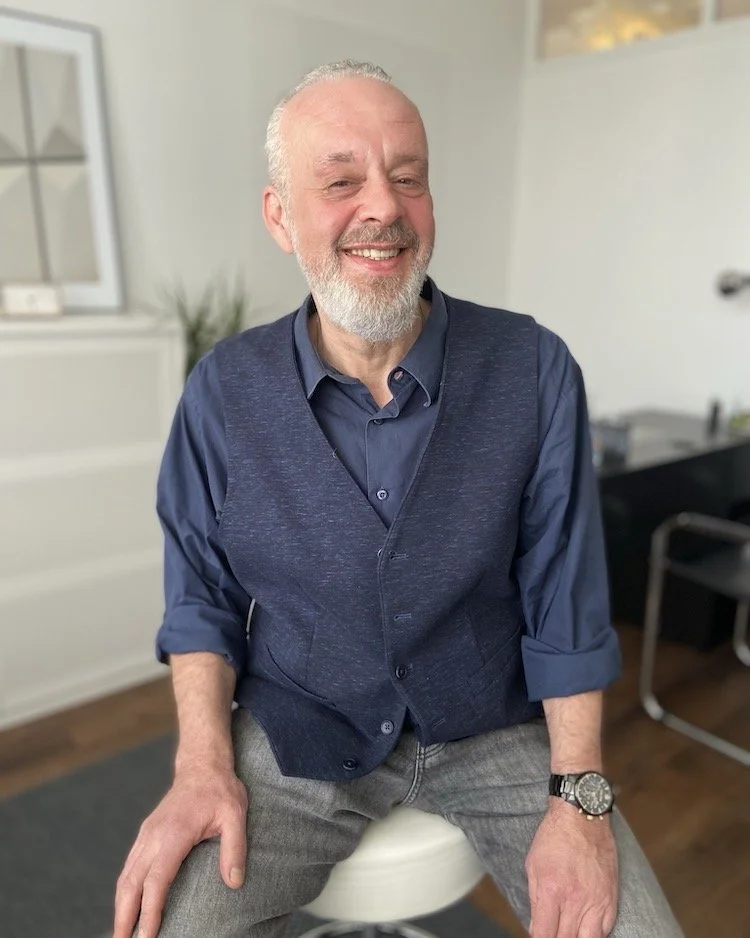Burn out & Hypnosis
INTERVIEW BURN OUT
What is Burn out?
It's a state of professional and personal exhaustion that also affects students and parents. It's a state characterized by intense fatigue, both emotional and physical, which simulates symptoms such as sleep and digestive problems. This fatigue becomes chronic. Cognitively, the sufferer may experience loss of memory and concentration. And then there's a feeling of inefficiency and despair.
Why hypnosis for burnout?
People in burn-out situations feel a permanent tension. This stress generates very high cortisol levels, which are difficult to reduce. In a deep trance state, a biochemical balance can be restored, enabling the person simply to move into a state of deep well-being and regain a sense of lightness.
How is Burn Out treated?
In the first session, I like to distinguish between major depression and exhaustion. I immediately invite the person, through the subconscious, to go into a state of deep relaxation. Once this relaxation has really taken hold, we can start talking about therapeutic work, i.e. finding the resource that will enable the person to connect with a sense of success. As soon as the person feels a first victory, hope sets in. For this to happen, it's very important to have established a strong therapeutic bond. Trusting your therapist enough to enter into a kind of intimacy enables you to let yourself go into a deep state of hypnosis, allowing your body to regain a sense of relaxation and well-being you haven't felt for a long time. This allows them to recharge their batteries, calm down and stop the vicious circle they find themselves in, between cognition, emotions and behavior. So it's a stop, a restart.
Next, we'll work on vital energy. This is very important, because the person is generally exhausted.
Finally, an action plan is put in place. The first 3 sessions should be spaced out to give the person the strength and motivation to continue to be accompanied by hypnosis. This reconnection enables the person to make decisions, which may involve changing career direction. And then, with coaching, we plan this new beginning, with new energy and new goals that are now achievable.
NEW THERAPIST
José Antonio GONDELLE
José welcomes you to Lausanne for hypnosis sessions. He specializes in the solution approach. His preferred themes are self-confidence, self-esteem, managing emotions and relationship problems, as well as improving concentration and exam preparation.
NEW SPACE IN LAUSANNE
Discover the intimate, futuristic atmosphere of our new individual practice at the mhp | centrum in Lausanne. This treatment area, equipped with a massage table, features a giant screen that broadcasts soothing images and sounds to accompany your journeys...
Question of the month
CAN I BE HYPNOTISED?
According to philosopher and therapist Nicole Prieur, "hypnosis is an old human story. It corresponds to an episode of dissociation of consciousness that we all go through more or less at some point during the day". On the basis of this observation, it's fair to say that everyone is hypnotizable, i.e. that everyone possesses the ability to enter hypnosis. Marta Hegyaljai Python, psychotherapist, hypnotherapist and director of the mhp | hypnosis training school, has seen this first-hand in her 20 years of practice. According to her, "as with everything else in life, getting into hypnosis is a learning process. Even if some people initially find it easier than others to reach this altered state of consciousness, it's accessible to everyone."
The really variable element is the time needed to reach this state of hypnosis and the degree of hypnotic trance intensity. A person has to want to be hypnotized, let go and concentrate. Even if, to date, there is no proven correlation between personality structure and suggestibility, we now know that certain elements can prevent hypnotic trance: a consultation against one's will, a preconceived notion of the practice of hypnosis, fear of loss of control, a consultation in a trance state linked to intoxication (alcohol, drugs, etc.), psychological resistance or too strong a desire to be hypnotized.



